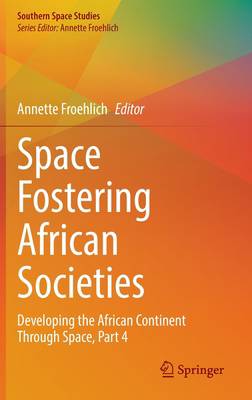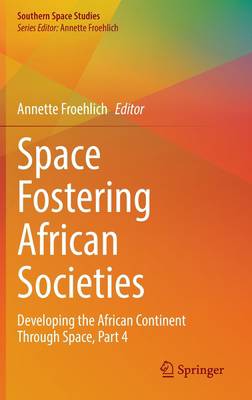
- Retrait gratuit dans votre magasin Club
- 7.000.000 titres dans notre catalogue
- Payer en toute sécurité
- Toujours un magasin près de chez vous
- Retrait gratuit dans votre magasin Club
- 7.000.0000 titres dans notre catalogue
- Payer en toute sécurité
- Toujours un magasin près de chez vous
Space Fostering African Societies
Developing the African Continent Through Space, Part 4
Description
This peer-reviewed book provides detailed insights into how space and its applications are, and can be used to support the development of the full range and diversity of African societies, as encapsulated in the African Union's Agenda 2063. Following on from Part 1 to Part 3, which was highly acclaimed by the space community, it focuses on the role of space in supporting the UN Sustainable Development Goals in Africa, but covers an even more extensive array of relevant and timely topics addressing all facets of African development. It demonstrates that, while there have been significant achievements in recent years in terms of economic and social development, which have lifted many of Africa's people out of poverty, there is still a great deal that needs to be done to fulfill the basic needs of Africa's citizens and afford them the dignity they deserve. To this end, space is already being employed in diverse fields of human endeavor to serve Africa's goals for its future, but thereis much room for further incorporation of space systems and data. Providing a comprehensive overview of the role space is playing in helping Africa achieve its developmental aspirations, the book will appeal to both students and professionals in fields such as space studies, international relations, governance, social, rural and technical development.
Spécifications
Parties prenantes
- Editeur:
Contenu
- Nombre de pages :
- 134
- Langue:
- Anglais
- Collection :
Caractéristiques
- EAN:
- 9783031125102
- Date de parution :
- 04-01-23
- Format:
- Livre relié
- Format numérique:
- Genaaid
- Dimensions :
- 156 mm x 234 mm
- Poids :
- 376 g

Les avis
Nous publions uniquement les avis qui respectent les conditions requises. Consultez nos conditions pour les avis.





